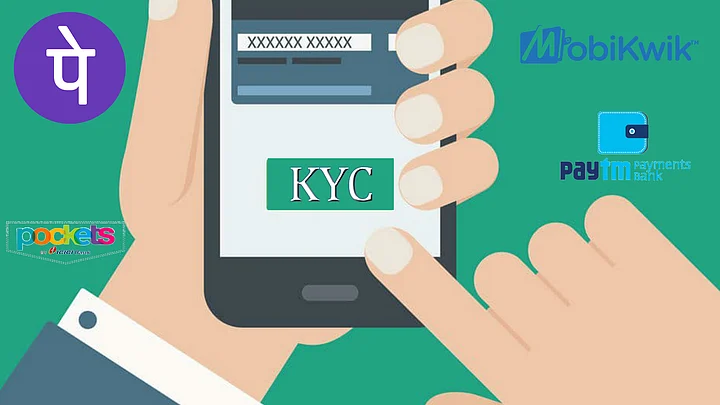Post demonetisation, India’s penchant for mobile wallets reached a new high, with cash seldom available on the streets. This catapulted demand for wallet players like Paytm, MobiKwik and PhonePe among others, including the government-pushed Unified Payment Interface or UPI.
But a recent ET Tech report says that most of the wallet companies might stop working, if they don’t adhere to a specific regulation from the Reserve Bank of India, asking them to complete “know your customer” (KYC) norms for all their customers.
Quoting a senior executive from a payment company, the report says that “95 percent of mobile wallets in the country could stop working by March 2019.”
Now this could pose issues for wallet players to operate in the market, especially with the RBI being stringent with its regulations in most cases.
The KYC regulation was first stipulated in early 2018, when the likes of Paytm, MobiKwik and PhonePe among others were asked to re-verify all of its prepaid wallet users, without which, wallet interaoperability wouldn’t have been possible to function.
According to the said RBI notification, all prepaid wallet users were supposed to complete their ‘Know Your Customer (KYC)’ requirements by linking their Aadhaar or other documents, or else they won’t be able to send money via the wallet to others or even transfer their own money back into their bank account.
This hastened the process with wallet players scrambling to get their users eKYCd. This hit an unexpected break post the Supreme Court verdict on use of Aadhaar without consent by deleting Section 57 of the Aadhaar Act, an old provision that allowed linking of Aadhaar to private services. The likes of Paytm had to wait for alternative KYC processes and this is likely to hurt them in the short as well as long term.
Added to that, RBI has taken its own sweet time to clear other KYC methods, and this delay has ensured that wallet players are running behind their deadline to get user KYC done.
The report claims, quoting a company executive that out of all the players, Paytm is probably leading the KYC race, with over 70 percent users registered, which still leaves it 30 percent short though.
It’s quite evident that most of these companies are waiting for judgment on the pending Aadhaar Bill, but they sure are treading a fine line, and hoping for something to work in their favour. This, however, could work in favour of UPI, and services like Google Pay and even WhatsApp Payment, who’ve got no such issues to tackle.
According to last reported RBI data on mobile payments, the number of transactions touched 333 million in June 2018. If the mandated regulations aren’t catered to, India’s boom for digital payments could see a steep fall in the coming months.
